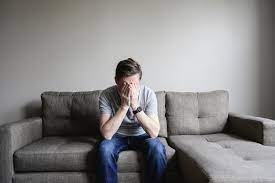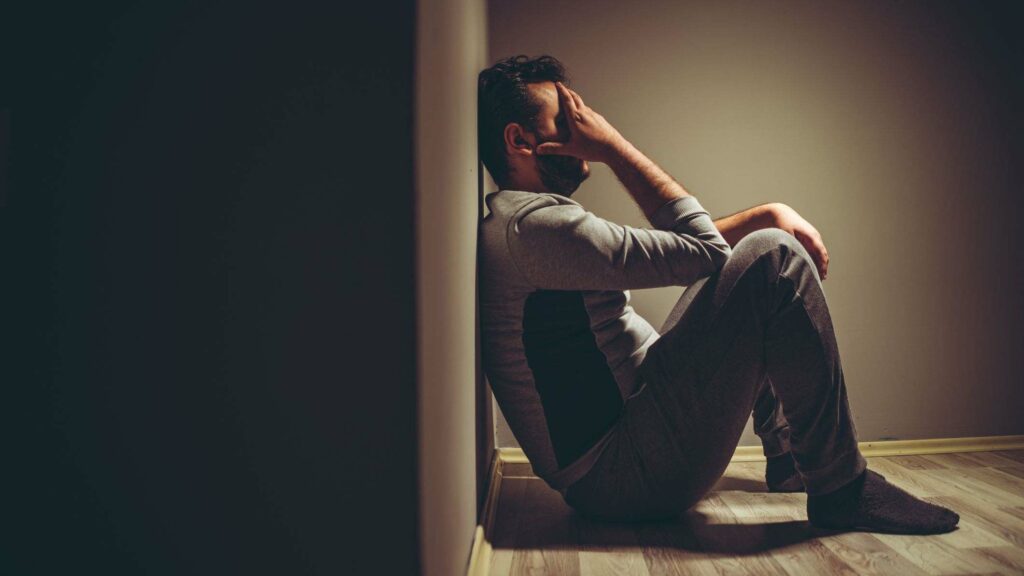Depression is a serious mental illness that affects millions of people around the world. There are different types of depression, and one of the most severe is melancholic depression. If you or someone you know is suffering from this type of depression, it is important to understand what it is and how to get help. In this blog post, we will discuss the symptoms, causes, and treatment options for melancholic depression.
Contents
What Is Melancholic Depression?
 Melancholic depression is described as a type of major depressive disorder (MDD). It is a mental health condition that is characterized by feelings of sadness, emptiness, worthlessness, and hopelessness. Though this disorder is seen as distinct from other types of depression, it shares many features with other types of MDD.
Melancholic depression is described as a type of major depressive disorder (MDD). It is a mental health condition that is characterized by feelings of sadness, emptiness, worthlessness, and hopelessness. Though this disorder is seen as distinct from other types of depression, it shares many features with other types of MDD.
It is a significant mental disorder that can negatively affect how you feel, think, and function in your daily life. It can also be accompanied by physical symptoms. Melancholic depression is defined as a subtype of major depressive disorder (MDD) by the Diagnostic and Statistical Manual of Mental Disorders, Fifth Edition (DSM-V).
There are different types of depression, and this type of depression is one type. It’s characterized by certain features that separate it from other types of depression. In most cases, the treatment is required to get better. In fact, without treatment, melancholic depression can worsen and lead to suicide.
Some studies suggest that melancholic depression is more common in women than men. It’s also been linked to certain medical conditions, such as:
- Cancer
- Heart disease
- Stroke
- Thyroid problems
Treatment for melancholic depression typically involves a combination of medication and talk therapy. Seek help if your symptoms become more severe and create problems in your life.
What Are The Symptoms Of Melancholic Depression?
The symptoms of melancholic depression are very similar to the symptoms of major depressive disorder. Some of the common symptoms include:
- Persistent feelings of sadness or emptiness
- Loss of interest in activities that were once enjoyed
- Sleeping too much or not being able to sleep
- Overeating or not wanting to eat at all
- Feeling fatigued or having no energy
- Feeling worthless or guilty
- Having difficulty concentrating or making decisions
- Experience changes in body movement or thinking
A person with melancholic depression may also have some features of MDD, such as:
- Intense feelings of worthlessness or guilt
- Thinking about death or suicide
- Recurrent thoughts of death or suicide
- Fixated on a particular thought or image
- Having delusions or hallucinations related to the themes of worthlessness, guilt, disease, impending doom, etc.
If you or someone you know is experiencing these symptoms, it is important to seek professional help.
What Causes Melancholic Depression?
 The causes of melancholic depression are not fully understood. But it is thought to be a combination of biological, psychological, and social factors.
The causes of melancholic depression are not fully understood. But it is thought to be a combination of biological, psychological, and social factors.
Biological factors: Melancholic depression may be caused by changes in the levels of certain chemicals in the brain. These changes may be due to genetic factors or other medical conditions.
Psychological factors: It may be caused by negative thinking patterns, such as always expecting the worst. In fact, psychological factors may play a bigger role in melancholic depression than biological factors.
Social factors: Social isolation, stressful life events, or a history of abuse or trauma can trigger melancholic depression.
These three types of causes are not mutually exclusive. For example, a person with this type of depression may have biological changes in the brain that contribute to their condition. But psychological and social factors may also play a role.
What Are The Consequences, If Left Untreated?
Melancholic depression is a serious psychiatric condition that can have major consequences if left untreated. Untreated this type of depression can lead to:
Problems With Work Or School Performance
If you are struggling with melancholic depression, you may have difficulty functioning at work or school. You may find it hard to concentrate, complete tasks, or interact with others. This can lead to problems with job performance or grades. In fact, untreated melancholic depression is one of the most common reasons people lose their jobs or fail school.
Isolation And Loneliness
Melancholic depression can also cause you to withdraw from friends and family. You may stop participating in activities you once enjoyed and may become isolated and lonely. If you’re struggling with melancholic depression, it’s important to reach out to your loved ones for support. You may also benefit from therapy or medication.
Substance Abuse
A person with this type of depression may turn to alcohol or drugs as a way of self-medicating. This can lead to addiction and further complicate the situation. If you think you or someone you know may be struggling with substance abuse. It’s important to get help from a professional as soon as possible.
Suicidal thoughts or attempts
When you are dealing with a mental disorder, it is important to understand all of the potential symptoms. For melancholic depression, one of the most serious symptoms is suicidal thoughts or attempts. This condition can be extremely difficult to deal with, and it is important to get help from a professional if you are dealing with this symptom.
The negative impacts of mental health disorders are often underestimated. If you are dealing with any type of mental disorder, it is important to get help from a professional. Mental disorders can have a significant impact on your life. And it should not be taken lightly. If you are dealing with melancholic depression, make sure to get the help that you need.
How Is Melancholic Depression Diagnosed?
If you think you may be depressed, see your doctor or mental health professional. You may be diagnosed with melancholic depression if you have most, or all, of the above-listed symptoms.
There is no one test that can diagnose melancholic depression. In fact, diagnosis can be done with a specific method, which is often called the clinical interview. This means that a doctor or mental health professional will ask you questions about your symptoms and how long you have been experiencing them.
The doctor or mental health professional will also ask about your family history, as well as any other factors that may be contributing to your depression. If you have melancholic features. Then, your doctor will likely ask about your medical history and perform a physical exam.
He or she may also order laboratory tests, such as a thyroid function test or a complete blood count (CBC). These tests can help rule out other conditions that may be causing your symptoms.
Your doctor will likely diagnose you with melancholic depression, once all other causes have been ruled out. And, furthermore, treatment options can be made.
What Are The Treatment Options?
There are a number of treatment options available for melancholic depression. These include:
Psychotherapy
This is often the first step in treatment. Psychotherapy can help you understand your depression and how to manage it. It is believed to work by helping you to change the way you think about your depression and yourself. There are mainly two types of psychotherapy:
- Cognitive-behavioral therapy (CBT)
- Interpersonal therapy (IPT)
CBT is a type of psychotherapy that helps you to identify and change negative thoughts and behaviors. IPT, on the other hand, focuses on your relationships with others and how they may be affecting your depression. Both are believed to work equally well.
The aim of psychotherapy is to help you develop healthy coping mechanisms, and find ways to deal with triggers. And learn how to manage your depression in a more positive way. You can try Mantra Care for the best CBT and IPT therapies.
Medication
 There are a number of different types of medication used to treat this type of depression. The most common are antidepressants. Antidepressants work by altering the levels of chemicals in your brain, which can improve your mood.
There are a number of different types of medication used to treat this type of depression. The most common are antidepressants. Antidepressants work by altering the levels of chemicals in your brain, which can improve your mood.
Other medications include:
- Mood stabilizers
- Antipsychotics
- Anti-anxiety medications
- Sleep aids
In some cases, electroconvulsive therapy (ECT) may be recommended. This is a treatment that involves passing electrical currents through the brain to trigger a seizure. ECT can be an effective treatment for people who haven’t responded to other forms of treatment.
This is often a long-term condition, so it’s important to work with your doctor to find a treatment plan that’s right for you. With the right treatment, many people with melancholic depression are able to manage their symptoms and live happy, productive lives.
Self-Care Tips
When you are dealing with any mental disorder, it is important to take care of yourself. This means:
- getting enough sleep,
- eating healthy foods, and
- exercising.
For melancholic depression, there are a few other things you can do to help yourself feel better. These include:
- First, try to spend time with friends or family members who make you feel good about yourself. It can be difficult to be around people when you are feeling down, but being around those who love and support you can make a big difference.
- Second, do something that makes you happy. This could be anything from reading a book to going for a walk in nature. Find an activity that brings you joy and stick with it.
- Third, talk to someone about what you’re going through. It can be helpful to talk to a therapist or counselor about your feelings. Talking to someone who understands what you’re going through can be a huge help.
If you are dealing with melancholic depression, know that you are not alone. There are many people who understand what you’re going through and want to help. Reach out for support and take care of yourself. You deserve it.
Conclusion
In conclusion, melancholic depression is a serious mental illness. If you or someone you know is suffering from melancholic depression, it is important to seek professional help. With proper treatment, people with melancholic depression can live happy and fulfilling lives.
Therefore, it is necessary for you to understand all you can about melancholic depression. This will allow you to identify the symptoms. Remember, there is no shame in seeking help for mental illness. It is a sign of strength, not weakness. If you or someone you know needs help, please don’t hesitate to reach out.
For more information, please contact MantraCare. Depression is a mental illness characterized by persistent feelings of sadness, hopelessness, and loss of interest in daily activities. If you have any queries regarding Online Depression Counseling experienced therapists at MantraCare can help: Book a trial Depression Therapy session


